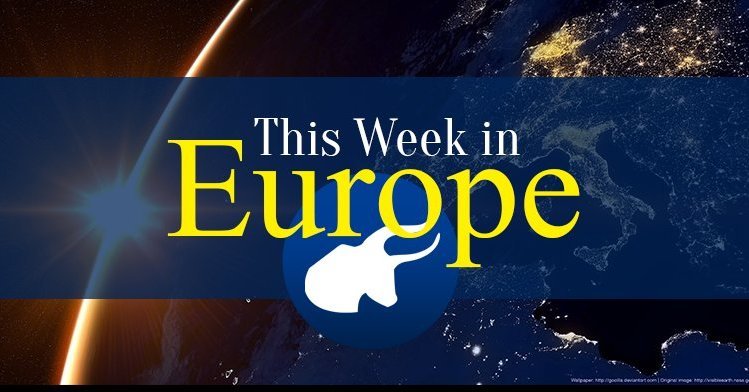EU & UN: Syria is not a chessboard
On Tuesday, EU and UN officials called for negotiations to end the civil war raging in Syria. Federica Mogherini. EU high representative for foreign policy, said that peace talks are only solution to the conflict. The UN special envoy for Syria, Staffan de Mistura, pointed that the situation in Syria became worse over the last period due to the chemical attack blamed on the Syrian regime and the retaliation of France, U.S. and U.K. With international donors at the same event promising $6 billion in aid for Syria, de Mistura called for Russia and Iran to push for peace talks, arguing that the EU and UN cannot do a miracle on their own. “Syria is not a chessboard,” Mogherini said, quotes by Politico. “It’s not a geopolitical game. Syria belongs to the Syrian people.”
Ireland recovers tax breaks from Apple
This week, tech giant Apple signed a legal agreement with the Irish government, promising to pay back the tax breaks that they were illegally given. Back in October, the European Commission sent the case of Ireland to the European Court of Justice, aftering deeming the tax breaks given to Apple as illegal state aid. Progress toward recovering the money likely saves Ireland from a second ECJ referral that could result in a fine. In total, €13 billion, plus interest, have to be given back, since the tax break applied only to Apple, resulting in an unfair advantage over its competition.
OLAF: Illicit cut tobacco a growing market in Europe
Margarete Hofmann, director for policy at the European Anti-Fraud Office, told EURACTIV that the volume of illicit cut tobacco products has been rising, especially in Central and Eastern Europe. This type of tobacco is cut or shredded, usually sold in unbranded pouches and smoked in handcrafted cigarettes, and has caused €1 billion in lost revenue across 15 European markets through the use of Free Trade Zones such as Podgorica in Montenegro. The illicit tobacco market has been linked to terrorist and criminal organizations in the Middle East and North Africa, with consumers having little to no knowledge about the link.
European Commission vs. Fake News
On Thursday, Mariya Gabriel, the EU Digital Commissioner, marked the EU’s new turn against fake news. By July, the European Commission wants online platforms to draft non-binding codes of conduct aimed at decreasing false information. If unsuccessful, the Commission will propose a “hard law” by December. EU officials want to prevent developments similar to the spread of fake information that occurred in the 2016 U.S. presidential elections. To combat fake news, the EU wants online platforms to make advertising models and impact algorithms public.
Moscovici: Bulgaria, the next country of the eurozone
On Friday, Pierre Moscovici, the European Commission’s czar for economic and financial affairs, said that “Bulgaria will be the next country of the eurozone.” However, he refused to set a timetable, arguing that the process cannot be rushed. The comment comes as Bulgaria is preparing to officially enter the EU’s Exchange Rate Mechanism, or ERM II, designed to help countries adopt the single currency. The mechanism also fixes the national currency against the euro, allowing to fluctuate only within certain thresholds.
Commission bans bee-killing pesticides
On Friday, 18 member-states, representing a qualified majority, voted to impose a complete ban on three neonicotinoids, the active substances in pesticides. Bayer’s imidacloprid and clothianidin, and Syngenta’s thiamethoxam were banned after the European Food Safety Authority (EFSA) confirmed them as a risk for bees. Romania, Hungary, Denmark and the Czech Republic voted against the ban. EU Commissioner for Health and Food Safety, Vytenis Andriukaitis, said that the Commission based its decision on science and evidence. Syngenta, the main producer of thiamethoxam, claimed that the decision was not the “right outcome for European farmers or for the environment” and questioned EFSA’s scientific conclusions, claiming that neonicotinoids pose a minimum threat to bee health.


Follow the comments: |
|
